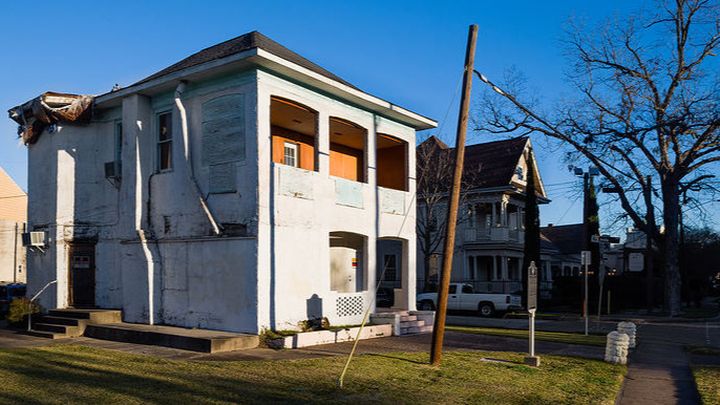
LULAC Clubhouse
Tax deductible
It’s been over a year where we have been separated and broken apart physically, mentally, and spiritually. We lost loved ones. Our civil rights and democracy were threatened. Educating children has likely never been more difficult.
In contrast and in defiance of this reality, let's rebuild a historic place of community advocacy through collective generosity.
As we rebuild together post pandemic, creatively facing shared obstacles, let's remember that organizing around common problems and developing creative solutions is what America does. It's what they did at the historic LULAC Clubhouse in Houston.
They built an early education program when the system failed them (it became the model for the federal Head Start program). They fought racism in a landmark supreme court case. They helped shelter their community, ultimately partnering with HUD. This historic house was the springboard for all this work and more.
Now, with your help, it can become a center of community and reflection again.
From the National Trust for Historic Preservation:
LULAC, or the League of United Latin American Citizens, was formed in 1929 by three Mexican American organizations in response to decades of anti-Mexican violence. This national organization—which has challenged legal and cultural injustice throughout its existence—was one of the most influential Latino civil rights groups of the 20th century.
While its contributions to Latino civil rights have made a lasting impact on thousands of lives, LULAC is still relatively unknown outside of the American Southwest. And the historic Clubhouse for LULAC Council 60 in Houston, Texas, one of the most influential chapters of the organization, faces an uncertain future.
The modest, two-story stucco building that became LULAC Council 60’s home was originally built in 1907 and purchased in 1955 for the use of their members. Council 60 was at the center of Mexican American political organizing in Houston during the 1950s and ‘60s, a formative time in civil rights history. Its Clubhouse served as the de facto national headquarters of LULAC throughout most of the Mexican American Civil Rights Movement. (The organization’s national office in Washington, D.C., was not established until 1996.)
Your donation will help pay the back taxes on this property, hire an architect, and ultimately faithfully preserve this national treasure for future generations, ensuring the structural, historical, and functional integrity of the building last for generations to come.
With your help, the LULAC Clubhouse will once again become an in-person hub of advocacy efforts and a historic place for future generations to reflect on the past.
In contrast and in defiance of this reality, let's rebuild a historic place of community advocacy through collective generosity.
As we rebuild together post pandemic, creatively facing shared obstacles, let's remember that organizing around common problems and developing creative solutions is what America does. It's what they did at the historic LULAC Clubhouse in Houston.
They built an early education program when the system failed them (it became the model for the federal Head Start program). They fought racism in a landmark supreme court case. They helped shelter their community, ultimately partnering with HUD. This historic house was the springboard for all this work and more.
Now, with your help, it can become a center of community and reflection again.
From the National Trust for Historic Preservation:
LULAC, or the League of United Latin American Citizens, was formed in 1929 by three Mexican American organizations in response to decades of anti-Mexican violence. This national organization—which has challenged legal and cultural injustice throughout its existence—was one of the most influential Latino civil rights groups of the 20th century.
While its contributions to Latino civil rights have made a lasting impact on thousands of lives, LULAC is still relatively unknown outside of the American Southwest. And the historic Clubhouse for LULAC Council 60 in Houston, Texas, one of the most influential chapters of the organization, faces an uncertain future.
The modest, two-story stucco building that became LULAC Council 60’s home was originally built in 1907 and purchased in 1955 for the use of their members. Council 60 was at the center of Mexican American political organizing in Houston during the 1950s and ‘60s, a formative time in civil rights history. Its Clubhouse served as the de facto national headquarters of LULAC throughout most of the Mexican American Civil Rights Movement. (The organization’s national office in Washington, D.C., was not established until 1996.)
Your donation will help pay the back taxes on this property, hire an architect, and ultimately faithfully preserve this national treasure for future generations, ensuring the structural, historical, and functional integrity of the building last for generations to come.
With your help, the LULAC Clubhouse will once again become an in-person hub of advocacy efforts and a historic place for future generations to reflect on the past.
Organizer
Jesus Davila
Organizer
Houston, TX
C 60, Inc.
Beneficiary